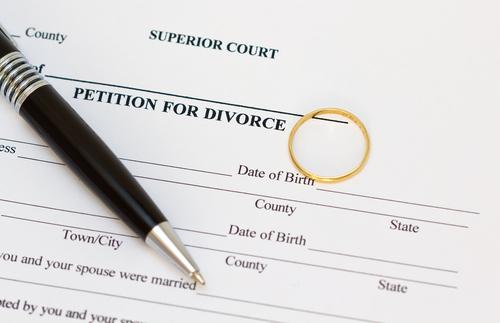Starting the Divorce Process in Will County, Illinois
 Ending a marriage is never easy. If you have reached the point where divorce is the only option, it helps to understand how the legal process works. While there are some basic elements of divorce, every case is unique. Working with an experienced Naperville, IL divorce lawyer ensures that you have the best chance at a fair decree for your family.
Ending a marriage is never easy. If you have reached the point where divorce is the only option, it helps to understand how the legal process works. While there are some basic elements of divorce, every case is unique. Working with an experienced Naperville, IL divorce lawyer ensures that you have the best chance at a fair decree for your family.
Determining Your Eligibility for Divorce in Illinois
To file for divorce in Illinois, at least one spouse needs to have lived in the state for at least 90 days. If you meet this requirement, you can file your case in the county where you or your spouse lives. For example, if you live in Joliet or Bolingbrook, you can file in Will County Circuit Court.
You can still file for divorce even if your spouse lives in another state. However, if your spouse lives outside Illinois, the court may have limited power to make decisions about certain matters, such as property in another state or custody of a child who lives elsewhere.
What Are the Legal Grounds for Divorce in Will County, IL?
Illinois is a no-fault divorce state. This means you do not need to prove that your spouse did something wrong to be considered eligible. Under 750 ILCS 5/401(a-5), the only legal reason, or ground, for divorce is "irreconcilable differences."
This term means your marriage has broken down beyond repair, and any attempts to fix it have not worked. The court also accepts that trying again to repair the marriage would not be in your or your family’s best interest. In the past, couples had to live apart for six months before they could file for divorce. That rule no longer applies. However, if you and your spouse have already lived separately for six months, the court will assume your marriage has permanently broken down unless someone proves otherwise.
File a Petition for Dissolution of Marriage in Will County, Illinois
Once you meet the residency rule and confirm your grounds for divorce, you can file a Petition for Dissolution of Marriage. You may do this in person at the Will County Circuit Clerk’s Office or through the Illinois online e-filing system.
You will include basic information like the date of marriage, the reason for divorce, and what you are asking the court to decide. The court will review important issues, such as parenting time, child support, spousal maintenance, and the fair division of property and debts.
After you file, you must give your spouse a copy of the petition. You can do it through the sheriff’s office, a private process server, or by having your spouse sign a paper saying they received it. Once served, your spouse has 30 days to respond.
Key Stages of the Illinois Divorce Process
After filing your petition, your case will move through several stages before the court issues a final judgment. Among the possible elements of the divorce process are:
-
Discovery: Both spouses exchange information and documents about income, property, debts, and other financial matters. This process helps ensure that each side has the facts needed to reach a fair agreement or prepare for trial.
-
Temporary orders: Either spouse can ask the judge to issue temporary orders for custody, parenting time, spousal support, or bill payments. These orders stay in place until the final divorce judgment.
-
Mediation: In Will County, parents of minor children must attend mediation if they cannot agree on parenting time or decision-making. Mediation allows both parents to work out a plan without going to trial.
-
Case management conference: The court holds a meeting to check the case’s progress and make sure both parties have met deadlines, such as submitting disclosures and attending mediation.
-
Settlement negotiations: Most divorces end with an agreement rather than a trial. You and your lawyer can work with your spouse to reach fair terms for how to handle property, parenting, and finances.
-
Trial: If you cannot reach an agreement, your case goes to trial. Both sides present evidence and witnesses, and the judge makes final decisions on unresolved issues.
Every case is different. Some divorces move quickly when both sides cooperate. Others take longer when disagreements arise. Your attorney can help you either way, ensuring no one violates your rights during the process.

Dividing Property and Debts in an Illinois Divorce
Illinois uses the rule of equitable distribution, which means property is divided fairly but not always equally. The judge looks at factors such as the length of the marriage, each spouse’s income, and who contributed to the home and family. Elements that are considered when making decisions about equitable distribution often include:
-
Assets gained during the marriage, such as homes, cars, and income, are shared fairly between both spouses.
-
Property owned before marriage or received as a gift or inheritance usually stays with the original owner.
-
Debts like credit cards, mortgages, and loans are divided based on who benefited or who can afford to pay.
-
Retirement accounts or pensions are divided through a Qualified Domestic Relations Order (QDRO) to avoid tax penalties.
-
Unpaid work, such as raising children or maintaining the household, is counted as a valuable contribution when dividing assets.
If you and your spouse agree on how to divide things, you can submit your plan to the judge for approval. If you cannot agree, the court will decide based on fairness and your specific situation.
Schedule Your Free Consultation With an Experienced Will County, IL Divorce Attorney
At Law Office of Ronald L. Hendrix, P.C., we offer personalized service and experienced legal support. Attorney Hendrix has over 30 years of experience helping clients resolve family law matters in and out of court. As a court-appointed mediator, he knows how to bring people together and find solutions that work. He also holds a Master’s degree in guidance and counseling, which allows him to approach each case with compassion.
Whether your divorce can be settled through negotiation or requires a trial, our team will stand by your side from start to finish. Call 630-355-7776 to schedule your free consultation with a knowledgeable and caring Naperville, IL divorce lawyer today.

















